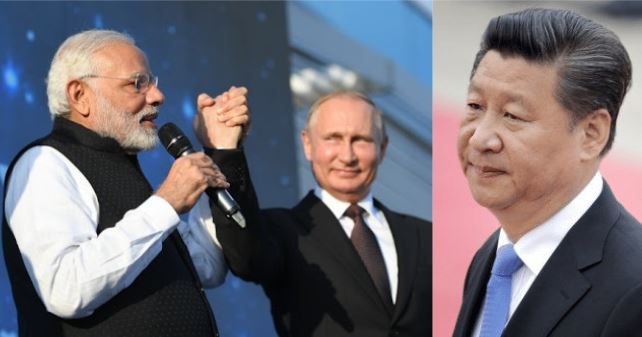Eyeing the vacuum likely to be created in a post-COVID world due to the backlash that China’s trans-continental infrastructure programme Belt and Road Initiative (BRI) is facing, state-owned entities of India and Russia have signed a Memorandum of Understanding (MoU).
India’s Ircon International Limited (IRCON), a Miniratna PSU under the Ministry of Railways has signed the MoU with ZD International LLC, a subsidiary of state-owned Russian Railways Company. The MoU aims at exploring the opportunities for development of railways and other infrastructure projects in Asia, Africa and Latin America.
According to the MoU, the two countries have agreed to form a joint Indo-Russian working group that will explore ways to forge a strong partnership to coordinate, plan and subsequently implement rail projects and other infrastructure not only in India, but also in countries of mutual interest.
Commenting upon the development, IRCON Chairman & Managing Director (CMD) SK Chaudhary said, “IRCON has been constantly looking to establish a strong partnership with the companies, wherein we can mutually benefit from our expertise. This MOU is a step towards building a long-term business relationship which will help us to enhance our presence in different geographies.’’
India is thus looking to “enhance its presence in different geographies”, in so many words. India understands that the world has realised how the Belt and Road Initiative (BRI) is facing the backlash of the Coronavirus Pandemic.
The Pandemic is bound to take a toll on the global opinion regarding the BRI. The fact remains that countries like Italy and Iran that figured prominently in China’s flagship initiative were some of the first ones to face massive waves of the Wuhan virus. At root of the Coronavirus outbreaks in these countries was the inward travel of Chinese officials and workers.
The Pandemic has shown how Chinese trade and infrastructure projects can export the country’s internal woes to other countries- a Pandemic this time. Beijing knows that the growth of the virus outside China would take a toll on the BRI projects. And the rogue behaviour of China in the past few months has only made it worse.
Even apart from the Pandemic, countries are realising the perils involved with the BRI, namely Beijing’s ‘debt trap’ diplomacy. Last year, two African countries Tanzania and Sierra Leone had scrapped BRI projects due to their exploitative nature and the heavy debt burden involved.
Recently, there has been a wave of anti-African racism in China that has created a massive anti-China sentiment in the Continent. Other countries like Kenya are already planning to exit the BRI and the fresh wave of racism in China could prove to be the last straw.
Within Asia, there is a growing sentiment against the BRI in Maldives and Indonesia. If an Indo-Russian project can offer a viable alternative, these countries would easily opt out of the Chinese initiative.
India has timed this MoU with Russia correctly, as New Delhi harbours concerns about growing Chinese presence through BRI projects in India’s vicinity, such as the trans-Himalayan rail line in Nepal and the CPEC corridor that runs through the Pakistan occupied Kashmir (PoK), which goes against India’s interests.
Modi government understands that China’s ambitions to make the most out of the BRI stand jeopardised, therefore it is aiming a joint project with Russia which will counter the Chinese influence across continents.
